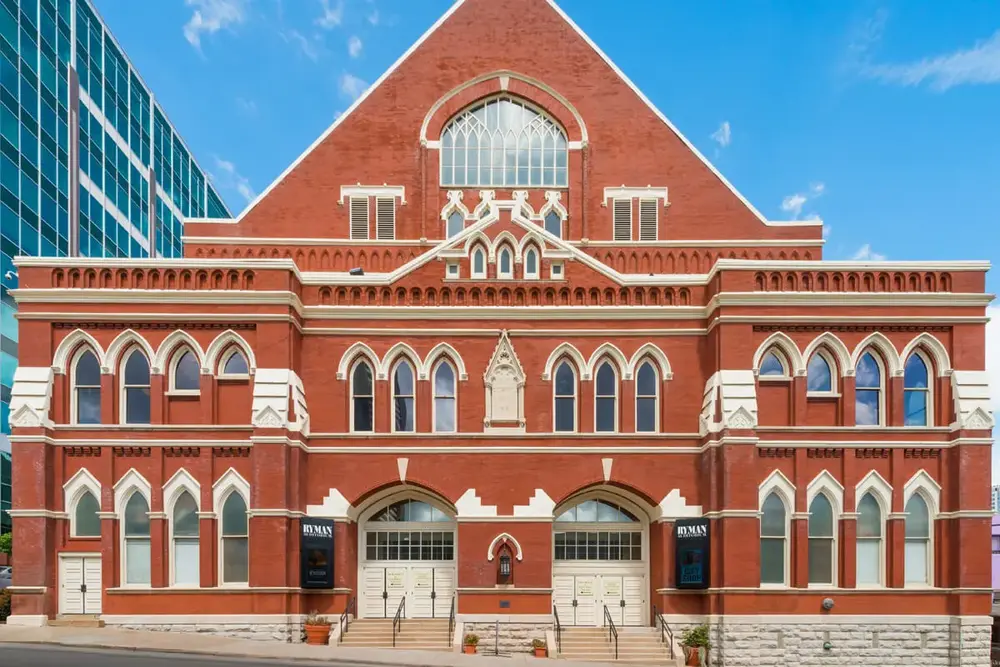Ryman Auditorium Information

The Ryman Auditorium is located at 116 Fifth Ave. N, Nashville, Tennessee 37219. It’s one of the most famous venues in American music history. Originally named the Union Gospel Tabernacle, the iconic 2,362-seat venue has played a massive role in the growth and evolution of country music.
From 1943 to 1974, it was famously home to the hugely popular Grand Ole Opry. This earned it the nickname the “Mother Church of Country Music.” And, in 2001, the Ryman Auditorium was designated a National Historic Landmark — firmly marking its spot as a truly iconic venue.
Today, the Ryman is owned by Ryman Hospitality Properties, Inc. Several renovations have brought the venue up to scratch for modern audiences while preserving its original charm. A 2012 upgrade saw improvements to the main stage. Meanwhile, a 2015 renovation expanded the lobby, restrooms, and concessions, and built a new gift shop.
As such, the venue continues to attract energetic crowds night after night. It hosts a wide array of performances — not only country, but everything from rock and roll to hip-hop. In 2022, it was named a Rock & Roll Hall of Fame Landmark.
Ryman Auditorium history
Originally known as the Union Gospel Tabernacle, The Ryman Auditorium was founded by Thomas Ryman in 1892. It was initially planned as a religious venue. However, it soon became an important part of Nashville’s cultural scene, and, after Ryman died in 1904, the venue was renamed Ryman Auditorium in his honor.
Under the new leadership of Lula C. Naff, the Ryman evolved into one of Nashville’s key entertainment venues. The promoter brought in brilliant acts such as Harry Houdini and W.C. Fields. She also made strides in promoting racial diversity, hosting events for both white and black audiences — despite the segregation laws of the time.
In 1943, the Ryman took another step to fame when it became the home of the Grand Ole Opry. This helped build its reputation as “The Mother Church of Country Music.” For over 30 years, the Ryman was the heart of the Opry. It saw countless legendary performers, including a young Elvis Presley. The Opry eventually moved to a new venue in 1974 — but the Ryman remained an iconic venue even after it had gone.
Soon after, it was listed on the National Register of Historic Places. The 1990s and 2000s saw significant renovations, helping restore the Ryman Auditorium to its former glory. Thanks to this careful management, it continues to host world-class performances that are on the bucket list of many music fans.
More Ryman Auditorium information:
Ticket Policies:
Policies and authenticity guarantee regarding tickets from our recommended ticket marketplace.
Seating Chart:
View the standard Ryman Auditorium seating map and read about different seating options.
Parking Information:
Information about the Ryman Auditorium parking options.
